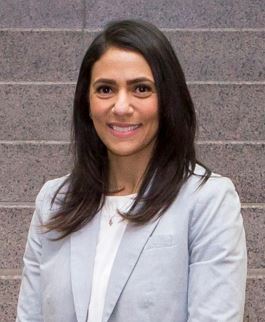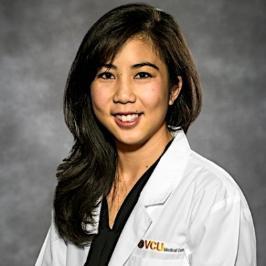PGY1 Pharmacy Residency
The PGY1 Pharmacy Residency is an American Society of Health System Pharmacists (ASHP) accredited twelve-month residency program designed to provide skill development in patient care (acute and ambulatory), teaching, research, practice advancement, and leadership.
Purpose Statement
PGY1 residency programs build upon Doctor of Pharmacy (PharmD) education and outcomes to develop pharmacist practitioners with knowledge, skills, and abilities as defined in the educational competency areas, goals, and objectives. Residents who successfully complete PGY1 residency programs will be skilled in diverse patient care, practice management, leadership, and education, and be prepared to provide patient care, seek board certification in pharmacotherapy (i.e., BCPS), and pursue advanced education and training opportunities including postgraduate year two (PGY2) residencies.
Qualifications
Applicants must be Doctor of Pharmacy graduates from an ACPE-accredited school or college of pharmacy; be licensed or eligible for pharmacist licensure in Virginia; and possess requisite patient care training or experience. Pharmacy residents must acquire and maintain a valid license to practice pharmacy in Virginia. The successful applicant must possess exceptional knowledge, communication skills, and leadership qualities.
Residency Goals
- To develop skills and competency in acute patient care, ambulatory patient care, drug information and drug use policy development, and health-system pharmacy management.
- To develop teaching skills in didactic and experiential training of Doctor of Pharmacy students.
- To develop and enhance the resident’s written and oral communication skills.
- To provide experience with quality improvement, research, and practice advancement.
- To provide a foundation for additional training in a PGY2 residency.
Program Structure
The program is comprised of required and elective clinical rotations that are generally five weeks in duration. The elective rotations are based on the resident's professional interests. Residents are also required to complete an Emergency Medical Response (code pager) experience, scheduled concurrently with a clinical rotation. Additionally, residents are required to complete an orientation to the health system (generally four weeks) and a longitudinal staffing/operations experience over the course of the year (generally 20 weekends per year plus one major and one minor holiday).
Required Rotations (6)
- Internal Medicine
- Critical Care
- Pharmacy Administration
- Drug Information and Policy
- Ambulatory Care
- Teaching
Elective Rotations (3)
- Acute Care Trauma Surgery
- Adult Hematology
- Adult Infectious Diseases Consult Service
- Adult Oncology
- Adult Psychiatry
- Cardiac Surgery ICU
- Cellular Immunotherapy and Transplant
- Child and Adolescent Psychiatry
- Coronary Care ICU
- Emergency Medicine
- General Cardiology
- General Pediatrics
- Medical Respiratory ICU
- Neonatal ICU
- Neurology
- Neuroscience ICU
- Pediatric Emergency Medicine
- Pediatric ICU
- Pediatric Oncology
- Solid Organ Transplant
- Surgical/Trauma ICU
Teaching
PGY1 Pharmacy residents receive an academic faculty appointment as a Clinical Instructor at the VCU School of Pharmacy and have opportunities to provide didactic instruction (e.g., lectures, team-based learning sessions, case conferences) and experiential training (e.g., APPEs) for Doctor of Pharmacy students from the Virginia Commonwealth University School of Pharmacy. Residents may participate in an elective Teaching and Learning Certificate program.
Research and Quality Improvement
Each resident is responsible for initiating and successfully completing a research or quality improvement project, with presentation at a regional residency conference. An advisor and additional support guide the resident through the process. Potential research or quality improvement projects are presented to the residents at the start of the residency program, and residents will rank their project preferences.
PGY2 Training
A PGY1 Pharmacy resident who desires to pursue a PGY2 residency at VCU Health System has two options. The resident may express their interest in the fall of the PGY1 residency and initiate the process for securing a PGY2 residency position through early commitment. If the applicant is successful, the PGY1 Pharmacy resident will generally be offered the PGY2 residency position in November with several days to accept or decline the offer, prior to the ASHP/NMS PGY2 early commitment deadline. If a PGY1 Pharmacy resident indicates an interest in a PGY2 residency position after the early commitment deadline, they may apply through the usual PGY2 residency application process by following the pertinent deadlines and participating in PhORCAS and the respective PGY2 match.
Program Leadership
 |
Program Director, PGY1 Pharmacy Residency Program May T. Aziz, PharmD, BCOP Clinical Specialist, Cellular Immunotherapies and Transplant Clinical Assistant Professor of Pharmacy |
 |
Assistant Program Director, PGY1 Pharmacy Residency Program Tammy T. Nguyen, PharmD, BCPS Clinical Pharmacy Specialist, Emergency Medicine |
Accreditation
This program is accredited by the American Society of Health-System Pharmacists and participates in the ASHP/NMS PGY1 Matching Program and PhORCAS. For details, visit the ASHP PhORCAS website.
Recruitment
Visit our Application and Recruitment page for more information on our virtual sessions and ASHP showcase and Personal Placement Service participation.
Number of Positions
6
Salary and Benefits
The salary for PGY1 pharmacy residents at VCU Health System is approximately $58,000.
Duration of Appointment
The pharmacy resident's contract at VCU Health System will begin on July 1 of the program year. The pharmacy residency will be completed on June 30 of the subsequent year.
Leave and Benefits
Two weeks (10 days) of paid vacation or personal leave are granted. Additionally, 9 days of paid holiday leave and 5 days of paid sick leave are provided. Residents also receive 2 days of family/self-care leave and 10 days for educational or professional leave.
Health Benefits
The VCU Health System provides a health insurance policy, including outpatient physician visits, lab tests, and optional dental, vision, and family coverage.
Liability Insurance
VCU Health System provides professional liability (malpractice) insurance for each pharmacy resident. The policy covers professional service within the institution.
Moonlighting
Residents may pursue additional paid staffing within VCU Health System upon program director approval, not exceeding 16 hours weekly.
Office Space and Resources
Office space and remote access to patient and drug information are provided for residents.
Health and Recreation Facilities
Residents have access to VCU recreational facilities at a reduced membership fee.
Parking
Parking and health-system shuttles are available on the VCU Medical Center campus at no cost.